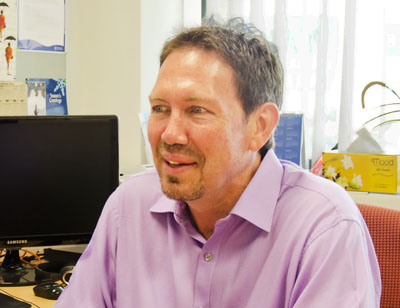Young Children’s Voices in Mathematical Problem Solving
Contributed by Dr Ho Siew Yin and Sng Wei Qin Abbie, from NTUC First Campus, for SingTeach Virtual […]
Read More
In our high-tech world, the Humanities disciplines continue to be relevant and may become even more so. Encouraging inquiry-based learning in Humanities education will prepare our students for more complex and broader challenges of the future.
Our world is becoming more complex, as are the many problems we face in the 21st century. But the more complex these challenges become, the more we have to return to the fundamentals of who we are.
The issues that confront us today are at their core about values and the kind of society we want, observes Associate Professor Mark Baildon, Deputy Head of the Humanities and Social Studies Education Academic Group in NIE.
“They require us to really think about who we are as humans and what it means to be alive in the 21st century; to really think about the human side of different issues that I don’t think can be solved by just technology or the sciences,” says Mark. “It’s fundamentally about values. It’s really about the priorities we have.”
 While some may talk of a decline in the Humanities in an increasingly technology-driven world, Mark thinks a renaissance may be around the corner. The Humanities are a fertile ground for grooming critical thinkers who can comprehend our increasingly diverse world and address the range of significant issues we face in society.
While some may talk of a decline in the Humanities in an increasingly technology-driven world, Mark thinks a renaissance may be around the corner. The Humanities are a fertile ground for grooming critical thinkers who can comprehend our increasingly diverse world and address the range of significant issues we face in society.
At the Humanities Educators’ Conference 2012, Minister for Education Heng Swee Keat spoke about how the Humanities subjects “provide multiple lenses to help students understand our world”.
“They equip students with critical thinking and communication skills as well as global perspectives to become confident persons, active contributors and concerned citizens,” Mr Heng said.
There is now a keen realization that education is not just about preparing students to be productive in the workplace.
It is also about them living satisfying and meaningful lives, says Mark, and becoming informed citizens who can engage in discussion, compromise and work through differences.
Mark, who had been a Social Studies and Humanities educator for over 30 years, is an advocate of inquiry-based learning.
He sees inquiry as central to our understanding of 21st century issues; issues which cross not just disciplinary boundaries, but also national and geographical ones.
Inquiry is about curiosity and questioning. It is about knowing how to gather accurate and relevant information, and analysing it meaningfully through lenses that can provide new insights and understandings.
“It’s about making well-reasoned, evidence-based conclusions that can be used to improve or better understand something, and to take action that benefits people,” Mark adds. “Inquiry just seems so fundamental to learning, to education, and to being alive.”
When applied to Humanities education, inquiry-based learning takes on a more reflective character. This is because the Humanities invite different perspectives from people and different solutions to problems.
“We really have to reflect on our own assumptions and values and to check our thinking all the time,” Mark notes. We also have to think critically about the evidence being used to support different conclusions and decisions.
The inquiry approach will possibly transform the way our children learn.
“It requires classrooms that are much more about questions rather than answers; much more about thinking than memorizing, and much more about different perspectives than a single perspective,” says Mark.
In the inquiry classroom, the way teachers relate to students will also change. “The teacher has to be much more connected with students and where they’re at,” says Mark. To make the subjects matter to the students, their interests and experiences should be taken into account.
Inquiry just seems so fundamental to learning, to education, and to being alive.
– Mark Baildon, Humanities and Social Studies Education Academic Group
Teachers will also need to constantly make connections between the curriculum and real-world issues for their students.
“It’s really important to make curriculum relevant to students to help them see that we’re studying this issue because it is a significant issue in the real world. And that these are not abstract issues – they’re real in their own lives, and in their own communities.”
These shifts may not always feel comfortable for both teachers and students. Sometimes, they may even struggle. But Mark tells us that struggle is actually inherent in the inquiry process.
“It’s a job that’s never done because you have to remain eternally curious about the world and try to find some pleasure and joy in the pain, because there’s a lot of ambiguity. There’s a lot of uncertainty involved.”
There will never be easy answers, but Mark believes important changes will come only through effort. If the inquiry experience can prepare students to be confident and adept individuals in the face of future challenges, the hard work we do now will certainly be worthwhile.
Useful Resource
Heng, S. K. (2012, May). Opening Address presented at the Humanities Educators’ Conference 2012, Singapore. Retrieved from https://www.moe.gov.sg/media/speeches/2012/05/30/opening-address-by-mr-heng-swee-keat-at-humanities-educators-conference-2012.php